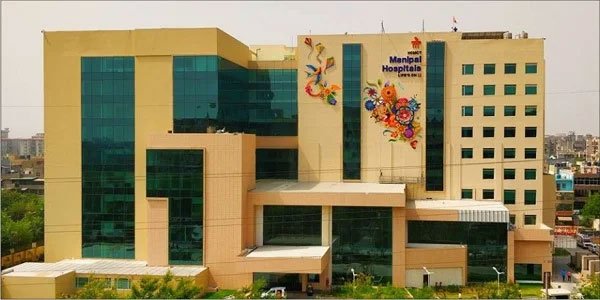Best Urology Treatment in India
Urology or urologic surgery in India has evolved to include minimally invasive and robotic procedures that ensure quicker recovery and much better outcomes. The top urology hospitals in India have a comprehensive team of urologists, experts and specialists to provide complete care to patients.
The best hospitals in India are equipped with cutting-edge technology, the latest innovation and also follow the international standard of patient care protocols.
The best urologists in India are adept in delivering successful outcomes by employing the latest surgical innovations like robotic surgeries, minimally invasive procedures, laser therapies, etc.
The field of medicine that focuses on the disease and treatment of the urinary tract in both male and female is known as urology. The urinary tract is the system that produces, stores, and extracts the body’s urine. Disorders or diseases treated in urology include conditions of the kidneys, the ureters (tubes which attach the kidneys to the liver), the adrenal glands, and the urethra (the pipe which carries urine out of the bladder). Urology also includes the medical management of conditions such as urinary tract infection, enlargement of the prostate, bladder cancer, prostate cancer, kidney stones and urinary incontinence.
Urologists may need to work hand in hand with oncologists or radiotherapists for certain conditions such as urinary tract cancer. The urologist will consult with nephrologists dealing with kidney problems dealing with the female reproductive system, and endocrinologists dealing with endocrine system conditions and hormone disorders to provide a more comprehensive treatment approach.
Urologic diseases
The urinary tract is your body’s drainage system for the excretion of urine. Urine which is a byproduct of the food and fluid we consume is eliminated by the kidneys during the blood filtration process. The process is carried out by the urinary tract that includes your kidneys, ureters, and bladder. To urinate adequately, the urinary tract needs to work together in the correct order. Urologic conditions include prostate problems, stones in the part of the urinary tract, bladder control problems, kidney stones, infections of the urinary tract.
Reasons you should visit a urologist
Blood in the urine:
If you detect blood in your urine then it’s immediately a cause for alarm. Visit your primary care physician right away, and they will help with arranging for an appointment with a urologist. If your urine is not the normal pale yellow but starts looking brown, pink, or tea-colored, there are chances that there’s blood in the urine. Remember that, blood in the urine may or may not be visible with a naked eye.
Sometimes blood in the urine may occur due to the temporary issues which are caused by injury and vigorous exercise, but usually, it’s due to far more serious urologic diseases like-
- Bladder infection
- Kidney infection
- Kidney stones
- Kidney, bladder, or prostate cancer
Poor Bladder control:
The inability to control your urine can signal a severe urological issue, and if not treated at the earliest it can lead to chronic conditions. The severity can include urine leakage when you cough or sneeze, and having the strong urge to urinate and not making it to the toilet in time. If this situation continues, you will have to see a urologist as soon as possible.
Painful Urination:
Painful urination for women usually means that they can contract a Urinary Tract Infection, and in men, it can mean they have a prostate condition. Some other causes can include:
- Bladder stones
- Chlamydia
- Cystitis
- Sexually transmitted infections
- Kidney stones
- Prostate inflammation
- Vaginal infection
- Yeast infection
Pain in the lower abdomen, Sides or Groin:
Painful urination also signifies stone in the kidneys. When you feel intense pain during urinating, it may come from the stones that move around when urinating. Symptoms may include:
- Severe pain when standing, lying down or sitting
- Blood in the urine
- Difficulty urinating
- Nausea, vomiting, and fever (which usually happened due to the infection)
Fallen bladder protrusion:
This condition usually affects women and the symptoms include:
- Tissue protruding from the vagina
- Pain in the pelvic region
- Difficulty in urinating
- Feeling that your bladder is not empty even after urination
- Urine leakage during sneezing, coughing, exertion
- Bladder infections
- Painful intercourse
- Lower back pain
Hernia:
The symptoms can be hard to detect, but you may see or feel a bulge that’s created by the hernia. The bulge will be more evident once you’re standing. Coughing and other strains will make the bulge quite noticeable. Once the diagnosis is confirmed, you need to get urology treatment without any delay.
Types of urology treatment in India
Based on the condition of the patient, the urologist will suggest the best treatment options. Urology treatment in India covers all the conditions of the urinary tract in both the male and female, along with male issues. The types of urology treatment in India are as follows:
Kidney Disease Treatment in India:
Chronic kidney diseases are caused by a number of causes. High blood pressure has an adverse effect on the kidney causing irreversible damage. The function of the kidneys eventually deteriorates to the point where the kidneys are no longer able to do their job properly, Dialysis is recommended in such situations.
Urologic Oncology in India:
Urologic oncology addresses genitourinary malignancies such as kidney tumors, adrenal glands, thyroid, liver, ureters, testicles, and penis. This includes the diagnosis and treatment of the urinary tract and male reproductive organs cancers. Robotic prostatectomy is the advanced surgical intervention done to successfully treat prostate cancer while sparing the delicate nerves that are essential to sexual functions. To know about robotic prostatectomy in India,
Varicocele Treatment in India:
Varicocele is the medical condition where the veins of the scrotum are enlarged. Varicocelectomy is a procedure carried out to remove the swollen veins. This procedure helps restore the flow of blood to the reproductive organs. A varicocele is similar to varicose veins that occur in the legs. The aim of the procedure is to seal the infected vein in order to redirect the blood flow to normal veins.
Enlarged Prostate Treatment in India:
Benign prostatic hyperplasia (BPH) or prostate enlargement is a medical condition often seen in older men. An enlarged prostate gland can cause unpleasant urinary symptoms, such as blocking out of the bladder urine stream. It may also cause problems with the bladder, urinary tract, and kidney. There are several effective treatments for the enlargement of the prostate gland which includes medications, minimally invasive procedures and surgery. Transurethral resection of the prostate (TURP), laser therapy for prostate enlargement, embolization, etc are some of the treatment procedures to treat prostate enlargement.
Erectile Dysfunction Treatment in India
Erectile dysfunction is the medical condition where the penis cannot reach enough rigidity to actively participate in sexual intercourse. This is often a symptom of a disease that is underlying, while sometimes stress and mental health are also causes of this condition. There are different treatment choices for erectile dysfunction (ED) depending on the cause and extent of your erectile dysfunction and any underlying health conditions.Please visit to know about erectile dysfunction treatment in India.
Kidney and Urethral Stones Treatment in India
Endourology is the minimally invasive procedure to treat kidney stones. The procedure is performed using endoscopes which are inserted into the urinary tract. It may be called a kidney stone, ureteral stone, or bladder stone, depending on where a stone is located. Endourology is also done for conditions including prostate surgery, stone removal surgery, and simple urethral or ureteral surgery. Lithotripsy is the surgical intervention used to treat kidney stones. It is the medical procedure in which the hardened masses known as renal and kidney stones are removed. Lithotripsy or extracorporeal shock wave lithotripsy (ESWL) means breaking stones. This involves sending shock waves to break down the stones of the kidney into tiny pieces that can exit the urinary tract naturally.
Renal Transplant in India
A renal transplant or kidney transplant is done when there is kidney failure. The causes of kidney failure can range from diabetes, damage to the urinary tract to autoimmune diseases. A kidney transplant is only done for patients with end-stage renal disease (ESRD). Please visit to know more about kidney transplant in India.
Pediatric Urology in India
Pediatric urology deals with the treatment of urological problems in children that are too complex for non-specialized pediatricians. It includes the treatment of genitourinary problems in children including undescended testicles (cryptorchidism), poorly developed genitalia, and vesicoureteral reflux.
What are the kinds of urological problems?
Urological problems can differ mostly in men, women, and children.
Men:
- Cancers concerning bladder, kidneys, penis, testicles, and prostate glands
- Erectile dysfunction
- Kidney stones
- Urinary tract infections
- Interstitial cystitis
Women:
- Bladder prolapses
- Cancers concerning bladder, kidneys, and adrenal glands
- Urinary tract infections
- Urinary incontinence
- Overactive bladder
Children:
- Bed-wetting
- Urinary tract structure problem
- Undescended testicles
Best Hospitals in India

Manipal Hospial Dwarka
View Profile
Dr. Rela Institute Medical Centre
View Profile
Jaslok Hospital
View Profile
W Pratiksha Hospital
View Profile
Sanar Hospital
View Profile
Fortis Memorial Research Institute
View Profile
Max Hospital
View Profile
BLK Hospital
View Profile
Medanta Hospital
View Profile
Artemis Hospital
View Profile
Apollo Hospital
View ProfileProvide Your Details
Our Health Expert will get back to you shortly.
